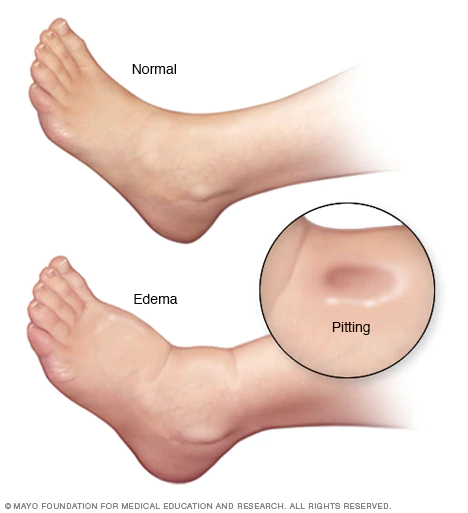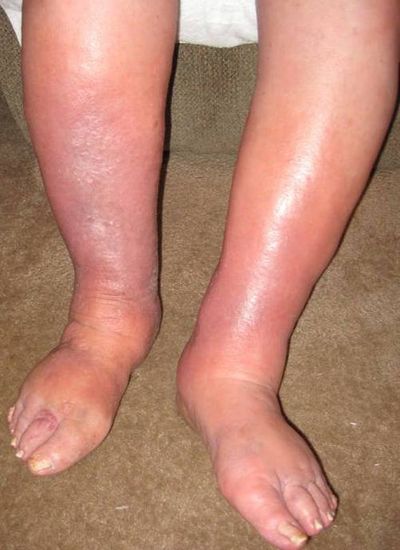Edema, otherwise known as “water retention” occurs when the fluid within the blood vessels increases.

This condition, though not dangerous, is embarrassing and can be very painful. Common causes include varicose veins, muscle strain, surgery, pregnancy, or disease. Many people also suffer from obesity. When this happens, the fluid builds up, causing it to pool in a pooling solution. This results in a painful sagging or swelling in one’s legs, thighs, arms, and trunk.
Sometimes, edema may be due to damaged or varicose veins in the legs. In this case, surgery involving the removal of large varicose veins can lead to edema. This type of edema is also known as chronic lymphedema, because it occurs over time. Extended standing and prolonged sitting can also result in excessive fluid buildup, particularly in hot and humid weather.
Normally, blood cells are supposed to circulate throughout the body through veins. This circulation depends on the thickness of the blood vessel walls. In an edemas situation, the walls of the veins become very thick. The extra blood that is circulating cannot pass through and is stored within the veins.
The body cannot effectively remove the excessive fluid builds up. The pooling fluid collects in the legs swell. As the amount of the liquid increases, the pool can also develop into a hardening or clotting condition. Eventually, this condition becomes a serious health problem. In extreme cases, it may result in death.
There are many treatment options available for the condition. In most cases, injections of medicine called lecithin are given in order to decrease fluid production. This helps in the process of removing excess fluid from the legs.

Another option to relieve the pain is taking anti-inflammatory medication, like ibuprofen or aspirin.
In order to prevent the condition from returning, it is important to maintain a healthy lifestyle. Exercising regularly, eating right, and maintaining a healthy weight all help to reduce the risk of it occurring. If the condition occurs frequently, surgery may be required in order to eliminate the cause of it.
Dropsy or fluid retention of the legs are usually very painful, so it is vital that you seek medical attention right away. In some cases, surgical treatments such as an Endovenous Ultrasound, Liposuction, Hemorrhoidsectomy, or Hypertension of the Lymphatic System can be used to help remove the cause of the problem. Sometimes, other procedures such as Tendonectomy, Cervical Septaruloplasty, or a Cervical Hyperthesis may be needed in order to correct the condition.
Surgery is not necessary in the majority of cases. If surgery is desired, the first thing to do is talk with your doctor and discuss all the options available. There are several choices available for treatment, depending on the condition. There are also surgical options that involve removal of veins or tissue, like an Arthrocentesis.
Surgical treatments will not cause you permanent pain or disability. It is common to have a temporary sensation of numbness, but this sensation will go away once the swelling is gone. You may experience mild swelling and bruising at the site of surgery. A local anesthetic may be used during surgery, so there is less pain.
If you do not want surgery, you may want to consider using natural methods to reduce the amount of edema in your body. Eating right can make a big difference in how much fluid you store. Try to eat healthy, whole grains, vegetables, and lean protein. Exercise on a daily basis to keep your body hydrated.
Drinking plenty of water can increase your body’s blood flow. Taking vitamins such as vitamin C, E, and C can also help to reduce fluid build up. The use of ice packs can reduce swelling and stop the pain. If the condition is severe, using compression stockings or a hot compress can also be an effective way of reducing the pain.
Consult your doctor before deciding which treatment options are best for you. Remember, edema can be treated and will often go away on its own.